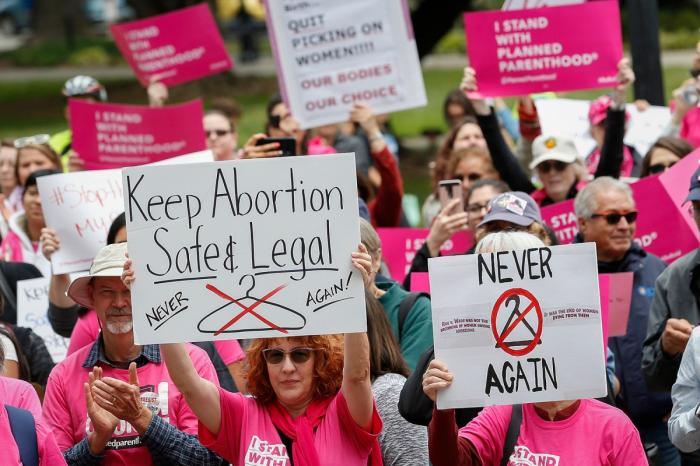During a heated presidential debate on Tuesday, former President Donald Trump made contentious claims regarding abortion policies, suggesting that Democrats support a practice he described as “execution” after birth. These statements, which have been widely disputed and fact-checked, have reignited a debate over the accuracy of abortion-related rhetoric in political discourse.
Misleading Accusations and Corrections
The controversy erupted when debate moderator Linsey Davis of ABC News questioned Trump about his stance on the Supreme Court’s 2022 decision overturning Roe v. Wade, the landmark ruling that previously legalized abortion nationwide. In his response, Trump inaccurately accused Democrats of endorsing post-birth abortions, a concept he labeled as “execution.”
Trump initially referred to a statement attributed to the former governor of West Virginia, but later corrected himself, clarifying that he meant former Virginia Governor Ralph Northam. “He said the baby will be born and we will decide what to do with the baby,” Trump claimed. “In other words, we’ll execute the baby.”
The former President also criticized Vice President Kamala Harris’s running mate, Minnesota Governor Tim Walz, for allegedly endorsing “abortion in the ninth month” and “execution after birth.” Trump’s comments suggested that such practices were acceptable to Democrats, a notion that has been refuted by numerous fact-checkers.
Fact-Checking Trump’s Claims
Linsey Davis and several fact-checking organizations have quickly rebutted Trump’s assertions. “There is no state in this country where it is legal to kill a baby after it’s born,” Davis responded during the debate. PolitiFact, a prominent fact-checking service, corroborated this statement by noting that what Trump described as “abortion” after birth would legally be classified as infanticide, which is illegal across all 50 states.
Samantha Putterman of PolitiFact emphasized that the majority of Democrats support abortion access up to the point of fetal viability, generally considered to be around 24 weeks of pregnancy. This policy allows for the termination of pregnancies where the fetus is unable to survive outside the womb. In cases where fetal anomalies are diagnosed that severely limit the baby’s post-birth survival, doctors may induce labor and provide palliative care to ensure the baby’s comfort in its final moments.
The Reality of Late-Term Abortion
Trump’s statements align with his previous controversial remarks about “late-term abortions,” a term that lacks a precise medical definition. According to Salon, the focus on late-term abortions is often exaggerated by anti-abortion advocates. Less than 1% of abortions in the United States occur after 21 weeks of gestation. The decision to terminate a pregnancy at this stage is typically driven by severe medical complications, such as fatal fetal anomalies or threats to the mother’s life.
Reproductive health experts clarify that the choice to seek an abortion later in pregnancy is rarely made without serious consideration and is often a response to dire circumstances that are not fully understood by the general public. The misinformation surrounding late-term abortions can contribute to a distorted perception of abortion practices and policies.
The Impact of Misleading Information
The dissemination of misleading information about abortion and infanticide can have significant consequences on public perception and policy-making. Statements that inaccurately portray the legality and practice of abortion can fuel misconceptions and exacerbate political polarization. It is crucial for public figures to provide accurate information, especially on sensitive topics such as reproductive health.
As the debate over abortion continues, it remains essential for voters and policymakers to rely on factual information and informed discourse. The clarification of misleading claims and the promotion of accurate representations of abortion practices are vital for constructive dialogue and effective policy development.
In conclusion, the debate has underscored the importance of fact-checking and accurate reporting in political discourse. Trump’s controversial claims about post-birth abortions and infanticide have been thoroughly debunked, reinforcing the need for accurate information in discussions about reproductive health. As the election cycle progresses, continued scrutiny and fact-checking will be crucial in ensuring that the public remains well-informed about critical issues.


